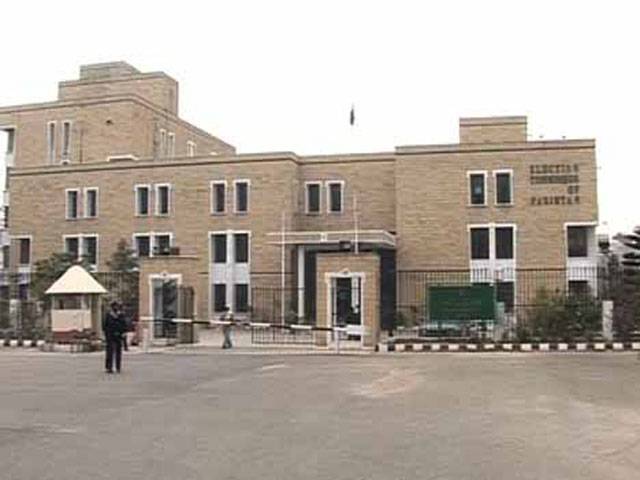ISLAMABAD- Eyeing speedy trial in the wake of prolonged delay in the election tribunals (ETs) appointment, the Election Commission of Pakistan (ECP) has asked the ETs to decide election petitions expeditiously within a period of four months and grant adjournments only in exceptional cases.
In the letter number D.O.No.F.10 (1)/2013-Law from the Secretary ECP Ishtiak Ahmad Khan to the 14 ETs on Thursday, the latter had been asked to “proceed with the trial of election petitions strictly in accordance with law, grant adjournments only in exceptional circumstances and ensure that petitions are decided expeditiously within the period of four months.” The letter quoted the relevant provisions of the Representation of the People Act (RoPA) 1976 in this regard.
Talking to this correspondent, the secretary ECP said that the commission had issued the said instructions to the ETs to ensure speedy trial considering that there had already been a delay in the ETs appointment. “Through speedy trial, the time that has gone in waste due to delay in the ETs appointment and subsequent hearing of the election petitions would be covered through speedy trial,” he said.
It merits recalling here that Sindh High Court had dissolved the three ETs in Sindh by declaring their appointment as unconstitutional, following which, the ECP had to reappoint all the 14 ETs afresh. “There are certain things that are beyond anyone’s control due to certain factors,” the secretary ECP commented, when asked, regarding delay in the ETs appointment apparently in connection with the SHC order. “But we’ll make sure that the respective trials on the election petitions are conducted unhindered for the dispensation of justice at the earliest.”
On the last month’s 13th, the commission had appointed 14 former district & sessions judges as ETs to hear election petitions on the general elections 2013. These ETs became functional on May 22 after the ECP officially notified the returned candidates in the general polls for all the five parliamentary assemblies.
The SHC had dissolved the Sindh ETs on the grounds that the court was not consulted prior to the ETs appointment. The registrar SHC, in a letter to the ECP, had also shared the court’s reservations over the ETs appointment without consulting the SHC.
In pursuance of the SHC order, the ECP had communicated to the registrars of all the five high courts to have the respective inputs of the chief justices concerned incorporated for the ETs appointment. The commission also tasked its provincial offices to work in coordination with the registrar offices for the incorporation of the CJs HCs input in appointing the ETs.
Consequently, in consultation with the CJs HCs, the ECP on Monday appointed 14 new ETs to hear the election petitions. Of them, five ETs have been appointed inPunjaband three each in Khyber Pakhtunkhwa, Sindh and Balochistan.
The ETs names and the region assigned to them are: Javed Rashid Mehboobi, Rana Zahid Mehmood, Saif-ur-Rehman Khan, Kazim Ali Malik and Syed Nasir Ali Shah are hearing election appeals in Faisalabad, Multan, Lahore, Bahawalpur and Rawalpindi regions in Punjab. Dr Zafar Ahmed Khan Sherwani, Zaheeruddin S Leghari and Muhammad Ashfaq Baloch hear election appeals in Sindh’s Karachi, Sukkur and Hyderabad regions. In Khyber Pakhtunkhwa, Zia-ud-Din Khattak, Shahji Rehman Khan and Syed Yahya Zahid Gilani hear election complaints from Abbottabad, Peshawar and Dera Ismail Khan regions. Muhammad Naeem Kakar, Muhammad Akbar Sani and Syed Abdul Khaliq Shah are the ETs for Loralai, Quetta and Hub regions.
Meanwhile, the secretary ECP’s Thursday letter to the ETs cited the RoPA 1976 Section 67 (1A). It reads, “The election tribunal shall proceed with the trial of the election petition on day-to-day basis and no adjournment shall be granted to any party for more than seven days and that too on payment of costs as the tribunal may determine and the decision thereof shall be taken within four months from its receipt: Provided that where a petition is not decided within four months, further adjournment sought by any party shall be granted only on payment of special cost of ten thousand rupees per adjournment and adjournment shall not be granted for more than three days.”






